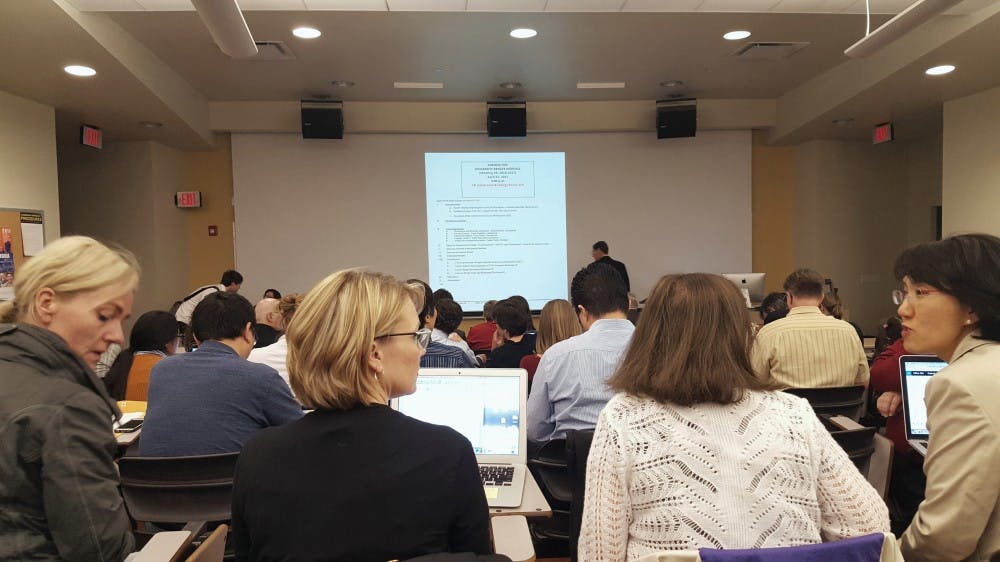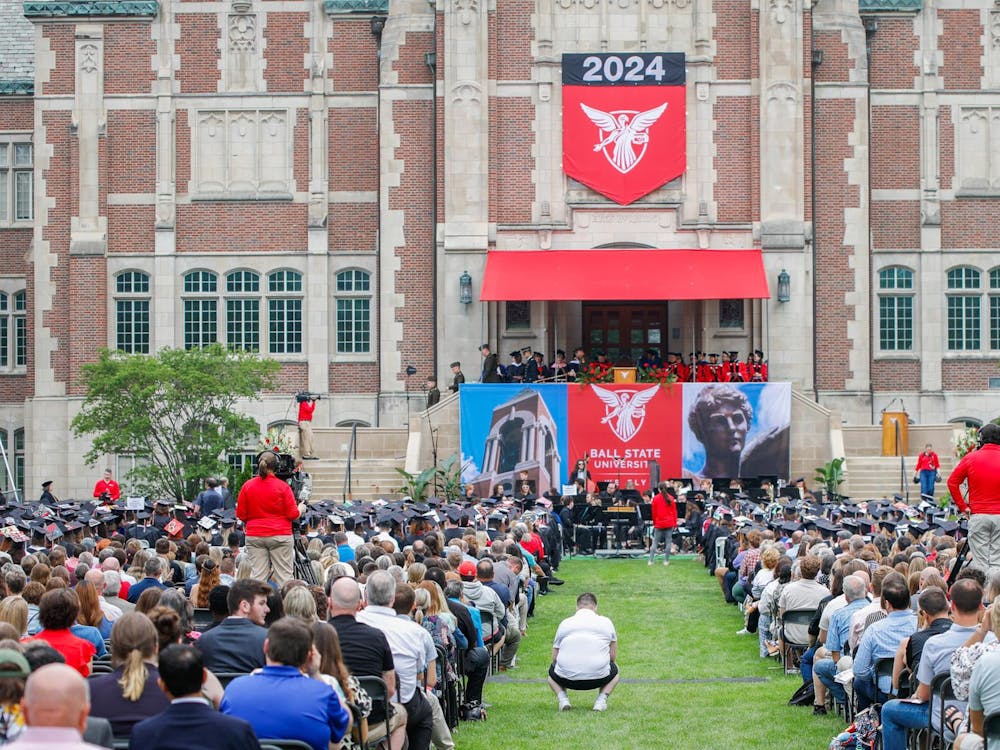The University Senate held its last session for this academic year Thursday.
Senators passed measures and resolutions which will be sent to other governance systems and the Board of Trustees to review and approve.
Here’s a breakdown of some of the resolutions passed:
College of Applied Sciences and Technologies dissolution and program realignment
Senators cast two separate verbal votes — one to dissolve CAST and one to house its programs within colleges of best fit.
Both measures, which passed unanimously, will not affect students who belong to CAST graduating next week. In fact, CAST will still hold its own graduation ceremony, as all colleges do at Ball State.
RELATED: CAST department dissolution poses ‘challenge’ for faculty
Contract Faculty Titles and Promotions
Interim president Terry King addressed the University Senate regarding his support and work in new titles and promotions for contract faculty — that is, faculty who are not tenured or on the
These faculty’s contracts allow them to teach for a semester, academic year or fiscal one-, two- or three-year basis. Contract renewal is not guaranteed.
“I think this policy will be deeply important,” King said.
The policy was drafted in order to “give all contract faculty a path to promotion,” the language says, and it passed by a large majority with only one senator voting against it.
King said he was confident the Board of Trustees would pass the policy, too. Eligible faculty should be able to apply for a promotion by spring 2018 at the earliest and receive a promotion by fall 2018.
Library funds
Senator Karen Kessler drafted the resolution that aims to call attention to the need University Libraries (which includes Bracken in addition to music libraries and the architecture library) has for financial support.
The resolution, which requests that administration and the Board of Trustees recognize “that a healthy, thriving library is necessary to any university in the retention and recruitment of outstanding faculty, researchers, and students” and to ensure University Libraries receive “sufficient resources.”
Faculty Council did not vote on this resolution, so it is unclear if it will pass through the governance system fast enough to be added to the Board of Trustees’ agenda for its meeting May 5.
However, the University Senate did vote verbally and passed it unanimously.





